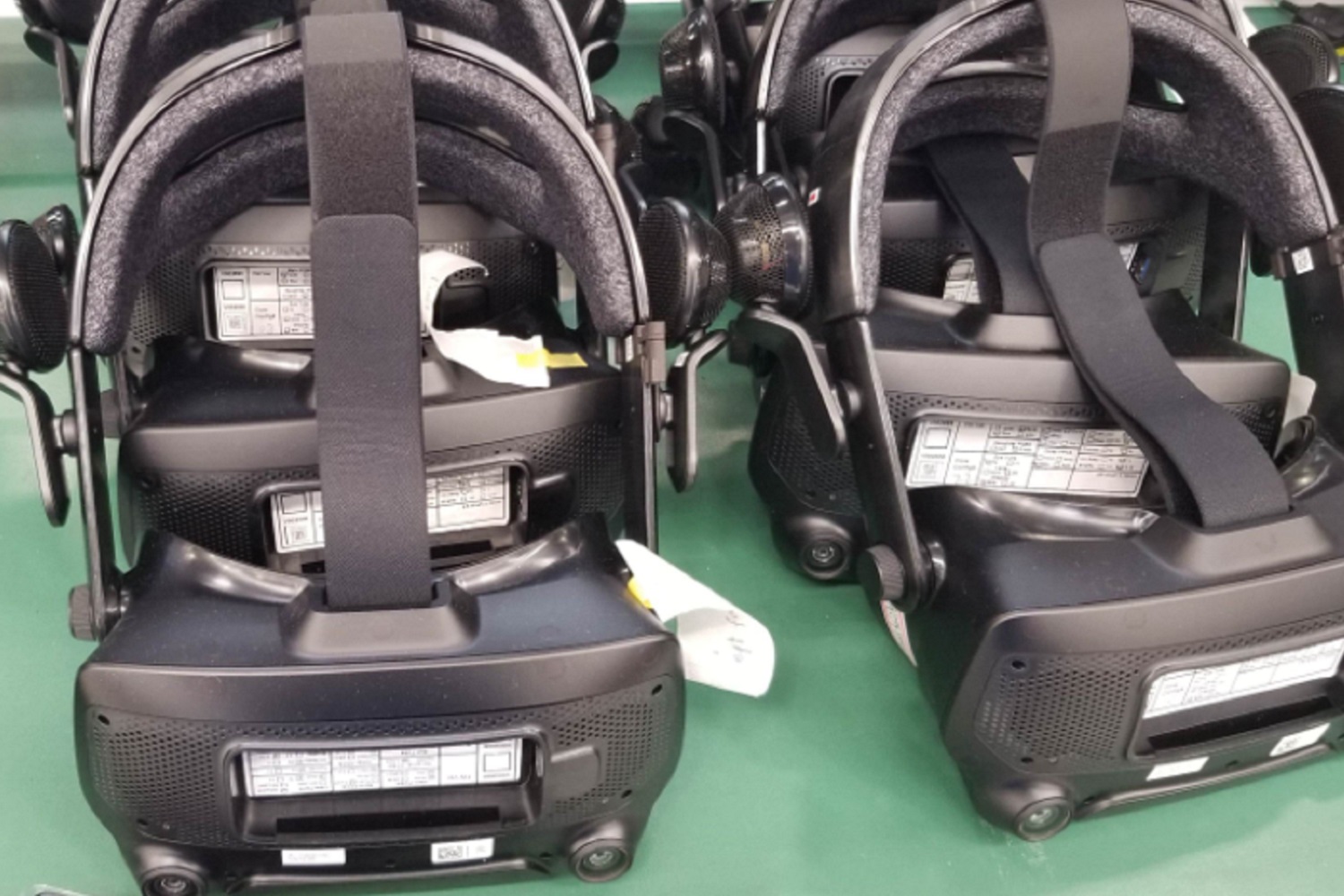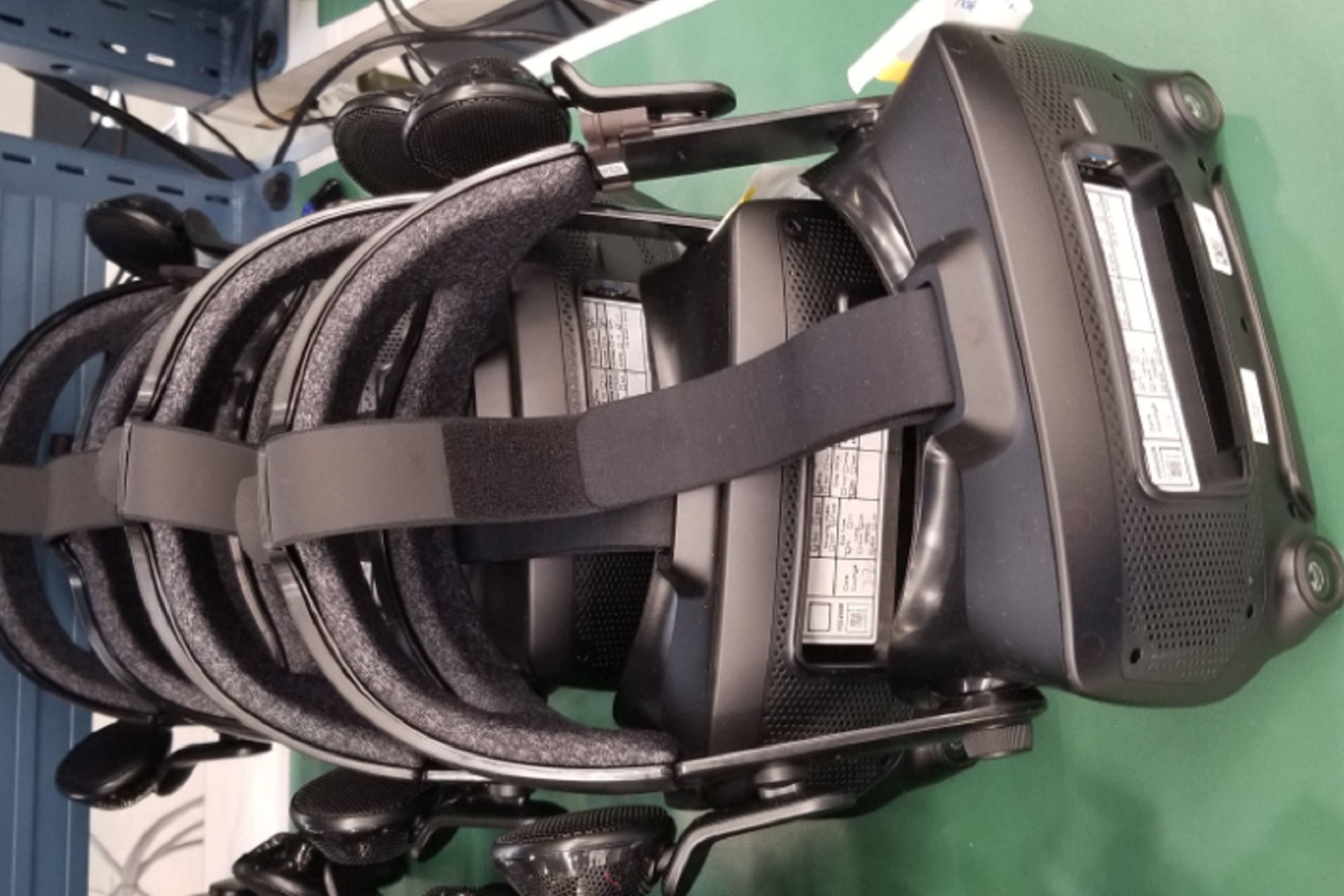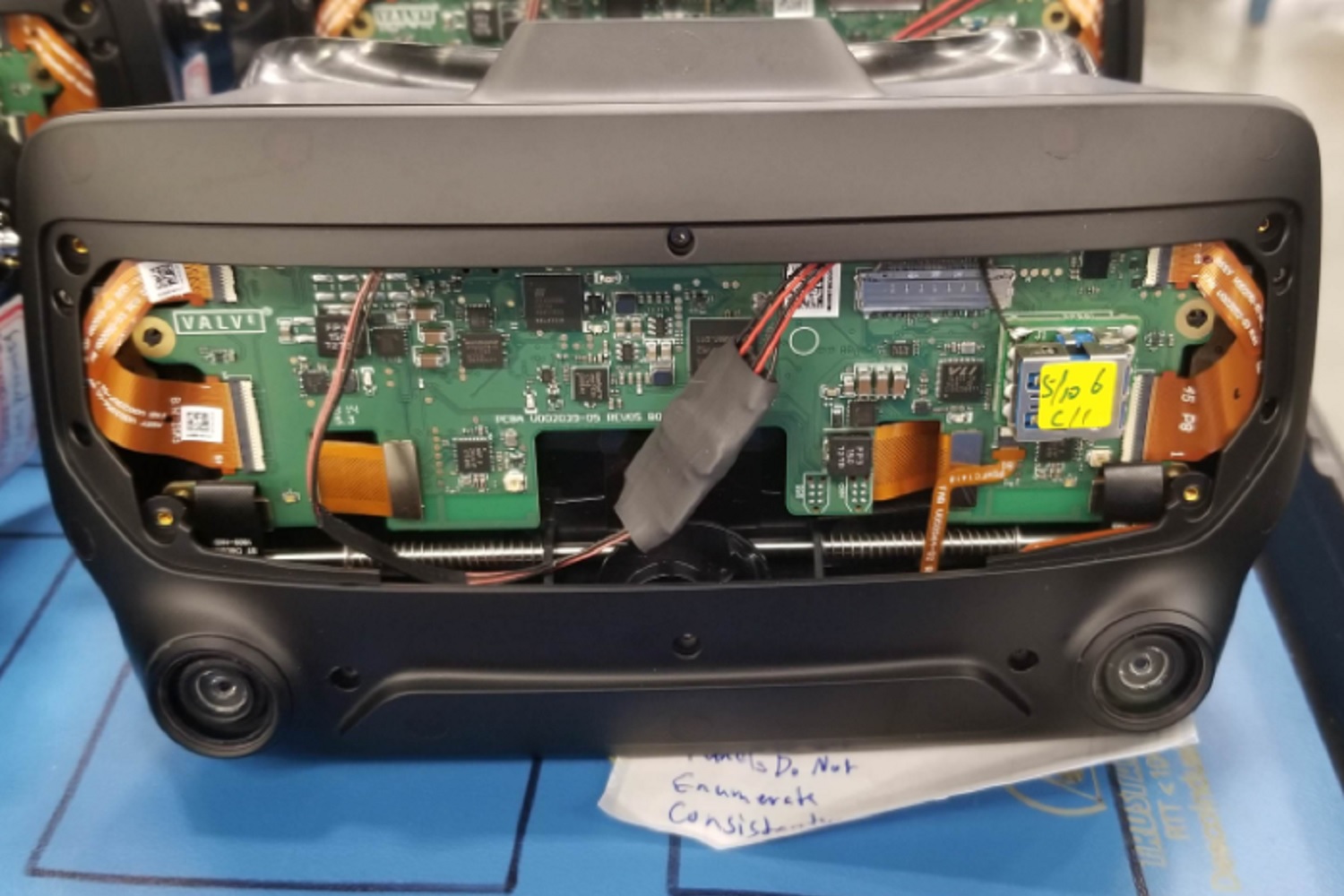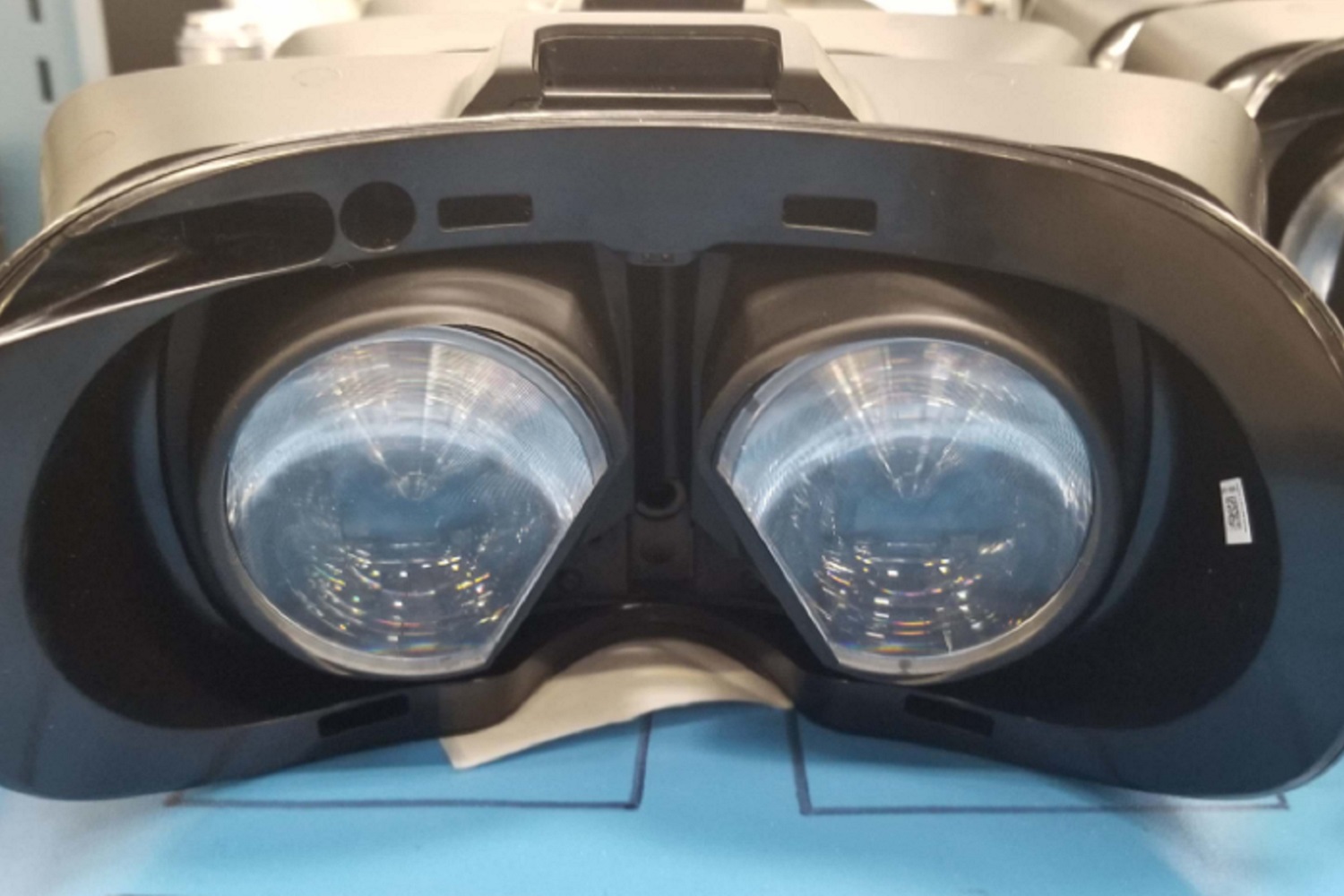Leaked images have revealed the Valve VR headset, with the device subsequently confirmed to be in development as a possible challenger to the HTC Vive.
The images of what appeared to be a prototype virtual reality headset were discovered on Imgur by Redditor 2flock. Valve teamed up with HTC to launch the Vive in 2016 and the Vive Pro this year, but the printed circuit boards (PCBs) featuring the Valve logo hint that the reclusive company is working on its own VR headset.
A closer look at the images reveal what appear to be integrated SteamVR sensors, which are also found in the HTC Vive, Vive Pro, and Pimax 8K. There also appears to be a USB port in a slot in front, which may possibly be used for add-ons.
There are also two visible cameras and integrated headphones, with the lenses appearing to be larger than the HTC Vive for a larger field of view.
There was the possibility that the device was nothing more than an internal prototype that would not be commercially released, or a reference design to be used by manufacturers. However, UploadVR’s sources confirmed that the device in the images was indeed the upcoming Valve VR headset.
The Valve VR headset will feature a 135-degree field of view, with resolution to match the Vive Pro, the sources said. In addition, the device may be sold in a bundle with Valve’s Knuckles controllers and a Half-Life VR game, which may be a prequel to the series instead of the highly anticipated Half-Life 3.
It is unclear when the VR headset will be released, but it is very likely that Valve has made progress on its prototypes as the clock on the monitor in the image indicates that the pictures were taken in July. It is also unknown why Valve would decide to make its own VR headset when it already has a partnership with HTC, but the developer has proven capable as a hardware manufacturer with the Steam Controller and Steam Link.
In the meantime, while waiting for the official announcement of the Valve VR headset, those looking to jump into virtual reality may want to check out the best VR headsets of 2018, with the HTC Vive leading the pack.






